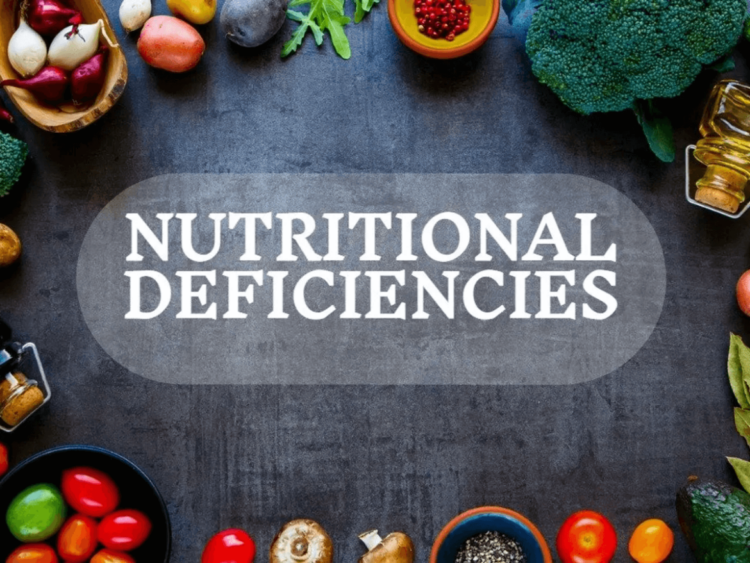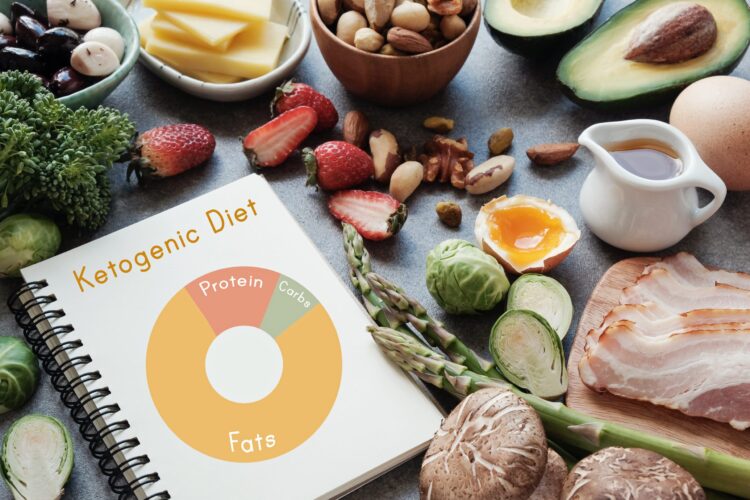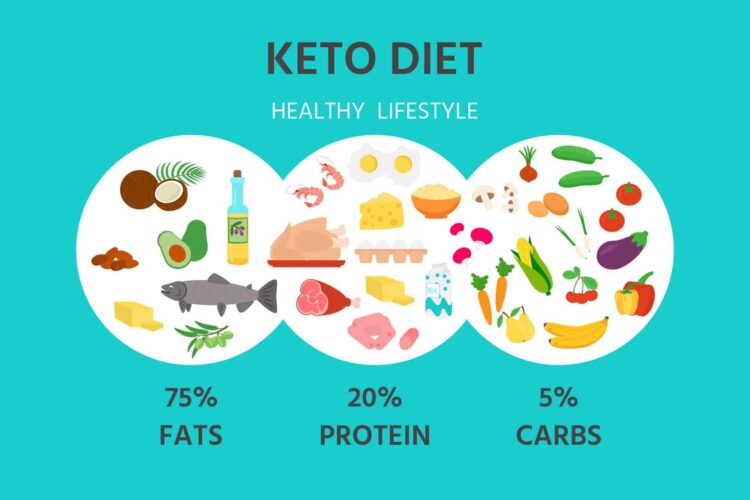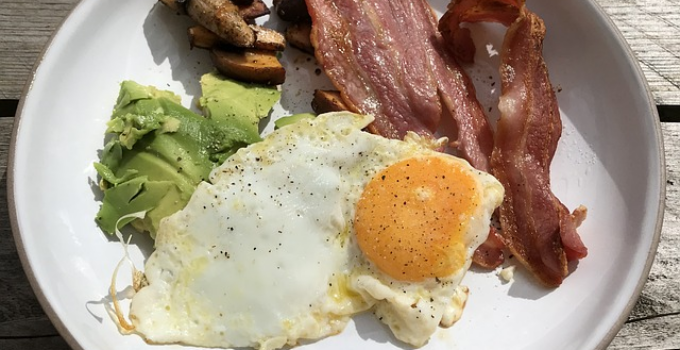Fat is back, and so is the ketogenic diet, which feeds on fat, takes protein in moderation, and is stringent on carbs, rapidly gaining followers who’ve seen the numbers on their scales and their metabolic health take a turn for the better. However, this dietary approach can inadvertently lead to nutritional deficiencies if not carefully managed.
Imagine stripping your pantry bare of carb-heavy staples – you’re left with limited options, and that can make it difficult to get the nutritional balance you need, including vital vitamins and minerals. As individuals transition into ketosis, the body adapts to burning fat for fuel instead of carbohydrates, but this metabolic shift can also impact nutrient absorption and utilization. The keto diet’s formulaic approach can sometimes oversimplify the complex interplay of macronutrients, leading to deficits that fly under the radar.
For instance, while the diet encourages the consumption of healthy fats from sources like avocados, nuts, and olive oil, it may simultaneously limit the intake of fruits, whole grains, and certain vegetables that are rich in vital nutrients. Body chemistry can quickly turn sour when electrolytes like sodium, potassium, and magnesium fall short, threatening to upend a multitude of essential bodily processes. Before embracing the keto way, it’s vital to acknowledge the potential snares that might undermine your efforts – a cautionary note for newcomers and veterans alike.
Page Contents
Common Signs and Symptoms of Nutritional Deficiencies

Source: chandigarhayurvedcentre.com
Recognizing the signs and symptoms of nutritional deficiencies is crucial for individuals on a keto diet. One of the most common indicators is fatigue or a general sense of lethargy. B12 and folate deficiencies can silently drain your energy reserves, as these B vitamins are necessary for metabolic functions that keep you moving and motivated. Individuals may also experience muscle cramps or spasms, often linked to low levels of magnesium or potassium.
Muscle function and nerve transmission rely heavily on these minerals, so when they’re in short supply, it’s no surprise that discomfort and poor physical performance follow. Nutritional deficiencies can trigger more than just physical issues – they can also leave their mark on your cognitive abilities. Individuals might notice increased irritability, difficulty concentrating, or even mood swings.
These cognitive changes can be attributed to inadequate omega-3 fatty acids or certain B vitamins that support brain health. Furthermore, skin issues such as dryness or rashes may arise due to deficiencies in essential fatty acids or vitamins A and E. Catching these signs early gives you a running start on making crucial diet tweaks and setting yourself up for a healthy ketogenic journey. Learn more about identifying signs of deficiency at https://www.drberg.com/blog.
Identifying Specific Nutritional Deficiencies
Identifying specific nutritional deficiencies requires a keen awareness of the foods consumed on a keto diet and their nutrient profiles. For instance, while the diet encourages high-fat foods like cheese and butter, it may lack sufficient sources of vitamin C, which is predominantly found in fruits and some vegetables.
Vitamin C plays a crucial role in keeping your body healthy, but a deficiency can lead to some nasty symptoms – think fragile immune systems and wounded skin that’s slow to recover. Digestive health hinges on adequate fiber intake, and eating grains and legumes can put you at risk of falling short. Another common deficiency among those following a ketogenic diet is electrolytes.
Sodium, potassium, and magnesium are often depleted during the initial stages of ketosis due to increased water loss and changes in insulin levels. You might experience some unwelcome side effects, like throbbing headaches, dizziness, and queasy stomachs – symptoms people often label as “keto flu.” To accurately identify these deficiencies, individuals may consider tracking their food intake using apps that analyze nutrient content or consulting with healthcare professionals who can recommend blood tests to assess vitamin and mineral levels.
Avoiding Deficiencies on a Keto Diet: What Not to Eat Matters Too

Source: reverehealth.com
Addressing nutritional deficiencies on a keto diet involves strategic planning and mindful food choices. Spice up your meals with a mix of veggies that are naturally low in carbs. Leafy greens such as spinach and kale are not only low in carbohydrates but also rich in vitamins A, C, K, and several B vitamins. Eating keto doesn’t mean sacrificing nutrition. These keto-friendly veggies – we’re talking broccoli and cauliflower here – offer up vital nutrients in spades. Another strategy is to consider supplementation when dietary sources are insufficient.
Imagine sinking into a peaceful slumber, cramp-free – that’s what magnesium supplements can deliver by tackling muscle spasms and smoothing out your sleep patterns. From fuelling better heart health to supercharging our cognitive abilities, the omega-3 fatty acids present in fish oil supplements are a natural – and potent – way to boost our overall well-being. To avoid any potential headaches, it’s a must to run your supplement plans by your healthcare provider. They’ll double-check that you’re not messing with any medication or diet rules.
Importance of Variety and Balance in Keto Meal Planning
The importance of variety and balance in keto meal planning cannot be overstated. When you skip the same old staples and opt for a vibrant medley of fruits, veggies, and whole grains, every bite becomes a flavorful escape. Sticking to a single food group can leave you feeling drained. But by mixing it up, you’ll cover all your nutritional bases and set yourself up for long-term wellness.
For instance, rotating different protein sources such as fatty fish, grass-fed meats, and plant-based proteins can provide varying amino acids and micronutrients. For peak energy and a smoothly running metabolism, one thing stands out: striking the perfect balance of macronutrients in your diet. While the keto diet emphasizes high fat intake, it is important to choose healthy fats from sources like avocados, nuts, seeds, and olive oil rather than relying solely on saturated fats from processed foods.
Balance is the perfect pairing for a healthy heart and efficient nutrient absorption – the dual benefits that help you feel your best. Keto cooking is all about building a hearty harmony of whole foods – think citrusy proteins, crunchy veggies, and nourishing fats – that let you savor each meal and feel amazing.
Address Nutritional Gaps with Expert Guidance

Source: azwellmed.com
Why go it alone on a ketogenic diet when you can partner with a nutrition expert to identify and plug any dietary gaps? Registered dietitians or nutritionists with experience in ketogenic diets can provide personalized advice tailored to individual health goals and dietary preferences.
Why not catch nutrition blind spots before they catch up with you? Expert analysis pinpoints areas for improvement, serving up action-oriented advice for shaking up your diet and integrating high-impact supplements. As patients, we get the benefit of healthcare pros’ bird’s-eye view – they can connect the dots between fluctuating health metrics and the bigger story of our overall health. For more general dietary guidelines, consult the National Institutes of Health.
With regular check-ups that include blood tests, you can monitor your nutrient levels and catch any potential imbalances before they become a problem while on a keto diet. Think of nutrition planning as a scavenger hunt for the best versions of yourself – by thinking ahead, you can sidestep common obstacles and zero in on the right fuel for your body and mind.




